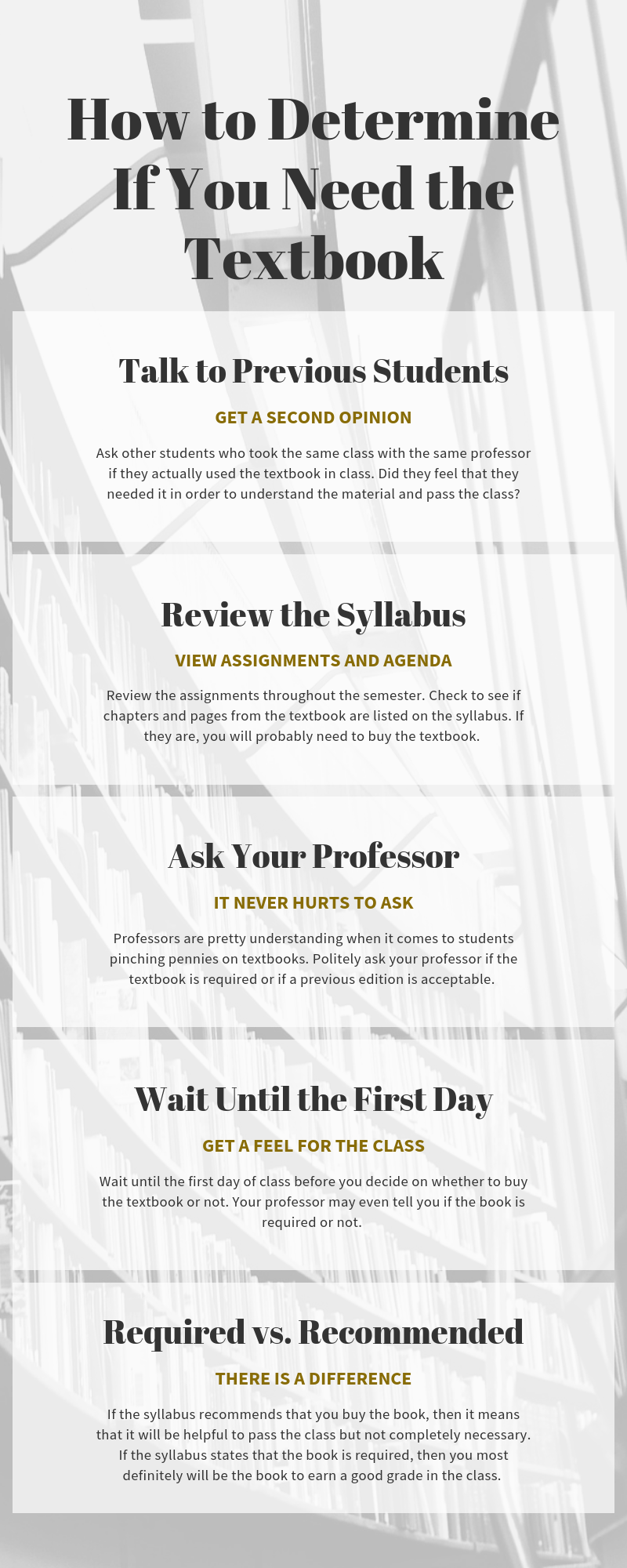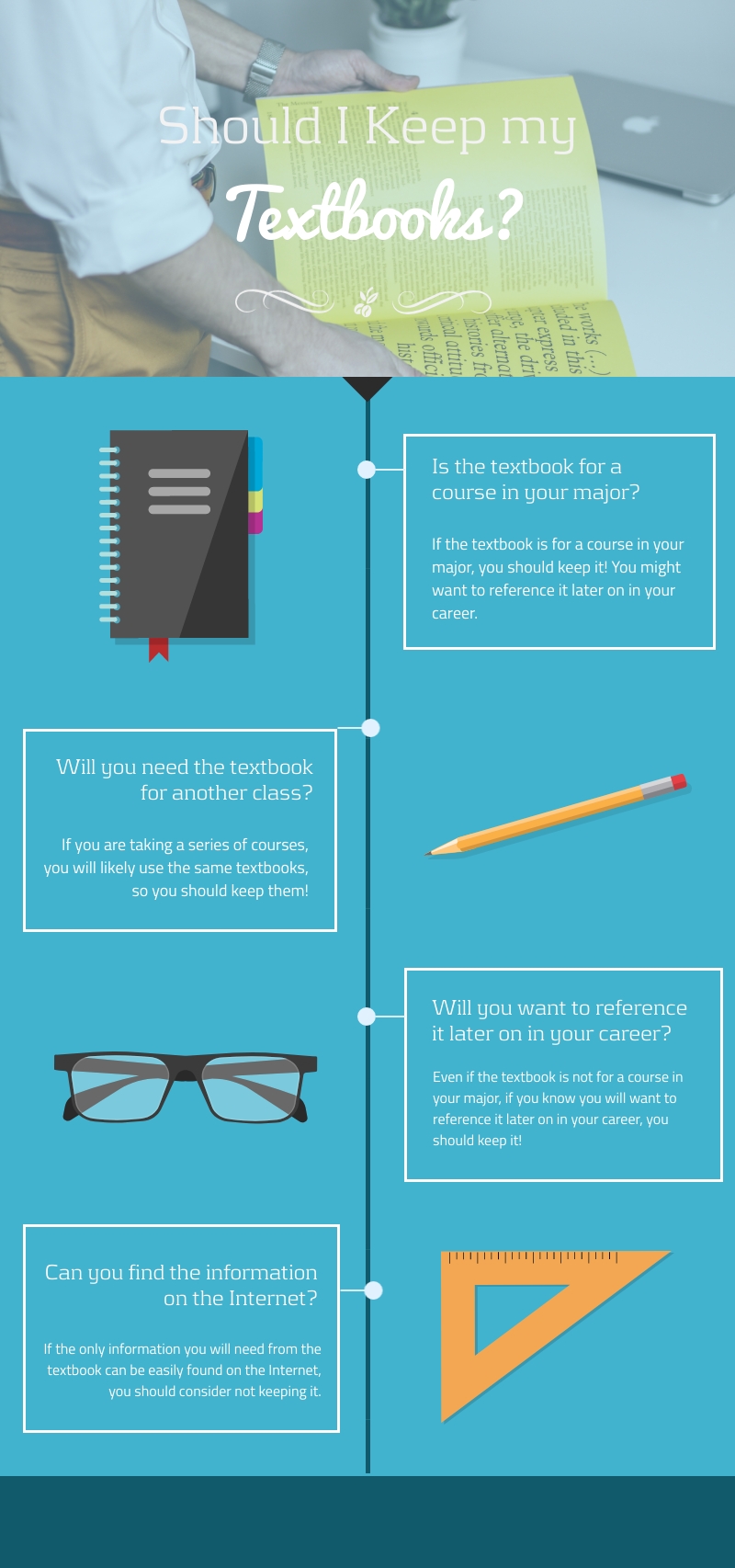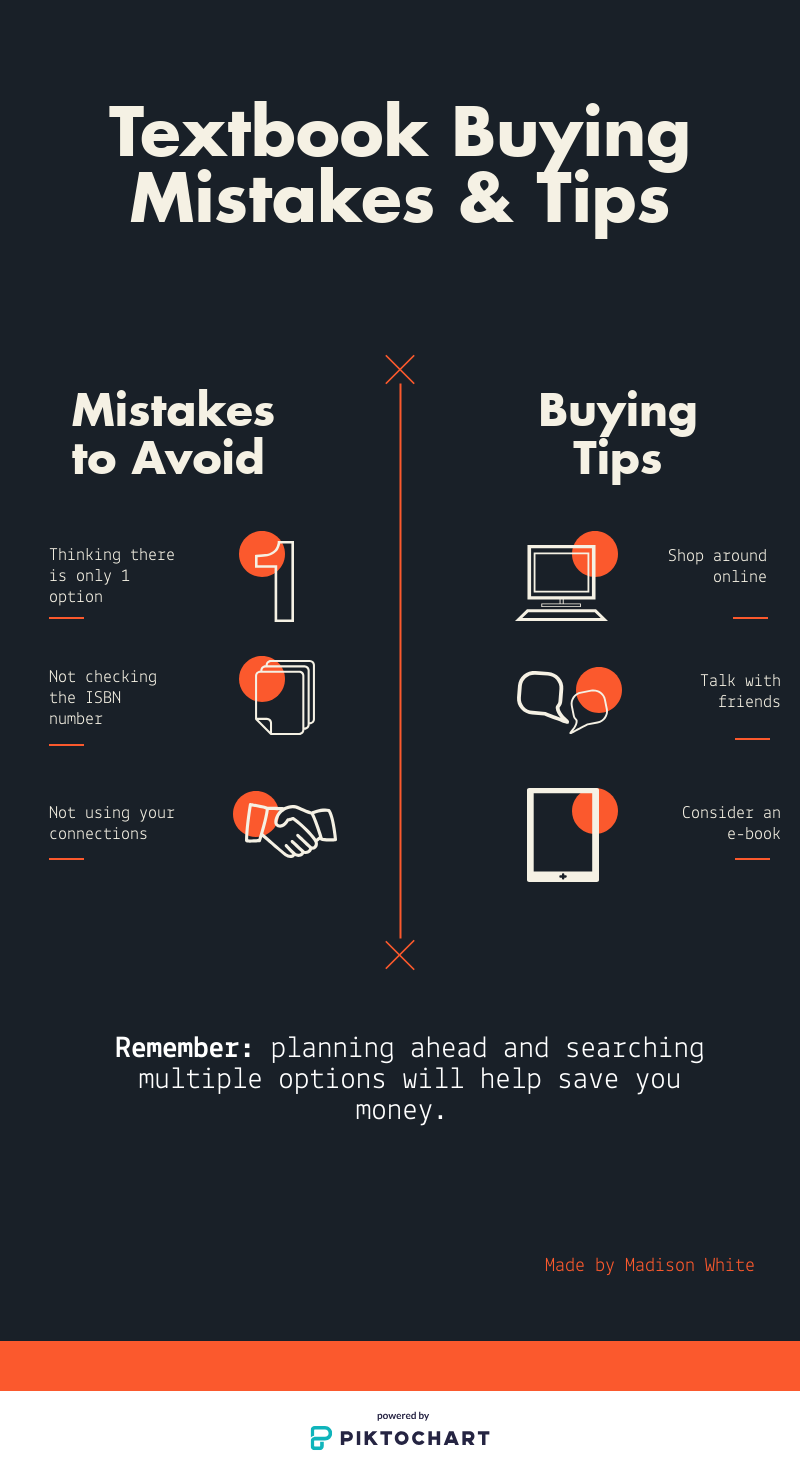Textbook Tips

It might sound crazy, but the spring semester is already approaching, which means it is time, yet again, to purchase your textbooks for another semester of college. While your bank account is likely screaming at you, your professors would be doing the same if you didn’t show up to class armed with the textbooks that you need to be successful for the semester. So, in an effort to not break the bank, where exactly should you be focusing your money this semester? Funny you should ask! T

When it comes to saving money during college years (and beyond). many students strive to pinch pennies whenever they can, wherever they can. Yes, you can cut back on the number of things you buy to "treat yourself" in order to save, but what about necessities you need from your daily and academic life? Being a college student can add up and be pretty rough on your wallet, so how can you save money on things you're pretty much forced to buy? College textbooks are pricey and havin

You’ve got a lot of questions to ask yourself while transitioning through or out of graduate school. This likely means that a large part of your life is changing. Maybe you are moving into a full-time job for the first time, or continuing to move on through another graduate school program. You’re likely trying to figure out where you’re going to live, what you’re going to do, and for most of us, how we’re going to start paying off those student loans. All of these l

When it comes to finding college textbooks, the struggle is real. At the beginning of the semester when the professor hands out the syllabus and materials you’ll need for the course, we all pray that the textbooks won’t be astronomically high- the problem is, they already are. In fact, college textbook prices have risen 1,041 percent since 1977. It all falls down to who controls the publishing and selling process, and unfortunately, publishers and even universities themselves having

One of the biggest expenses of going to college is buying textbooks each semester. Depending on your major, students can spend on average $1,200 per semester on textbooks alone. The worst part is that sometimes you don’t actually need to buy the textbook for class. How can you determine if you actually need the textbook though? There are a few ways to decide whether or not to spend the money on the book. There are also ways to save money on textbooks when you determine that it is necess

When starting off as a freshman in college, everything is new to you. From dorm living to coursework, there are vast differences from high school to college. One of the biggest, and most expensive, differences is that you will now be responsible for purchasing your textbooks. While it doesn’t seem like a ton of responsibility, it actually is, which is why there are a lot of questions surrounding it, such as when you should look for them, where to purchase them and where to buy them.

As college students, we accumulate many textbooks throughout the years. It’s easy to buy textbooks and then leave them on your bookshelf to collect dust once the semester is over. This is a waste of money and space, since we know textbooks are expensive and we do not want our bookshelves to be cluttered. However, there are other textbooks that you might need next semester, or that you might want to reference in your future career. In this case, it’s not wasteful to keep the textbook;

After the semester, you will likely have textbooks left over from your classes. This can leave you wondering what to do with them. You may need to reference them in future classes, but Should you hold on to them, or should you sell them? Can future students use them? These are all possibilities, depending on your preferences. Sell your textbooks If you want to get rid of used textbooks that you definitely do not plan on using for future classes, one way to get them off your hands is to

When starting a new semester of college, your mind may feel like it’s being pulled in many different directions. You’ve got loads to think about: housing, friends, schedules, upcoming events. With all this going on, making sure that you have the textbooks you need may be an afterthought. Waiting too long to acquire your textbooks may mean that you’re making a mad dash to the university bookstore and spending more than you should. Unfortunately, many students aren’t pro

College students across the country struggle with the price of a higher education. In fact, the average cost for room and board at an in-state, four year university in the US is almost $21,000 per year. Of course, this doesn’t include food, textbooks, or living expenses. Students in the United States spend quite a chunk of change on higher education after college, regardless of the kind of university they choose to attend or their major course of study. Paying for school is daunting


